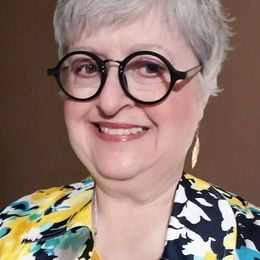It’s a Myth That Everyone 90+ Is Depressed
In fact, 3 in 4 aren't. Here's what you should know when it comes to individuals over 90 and mental health.
The decline of face-to-face contact in the aftermath of the pandemic and societal change has caused an increase in loneliness and its sometimes sidekick, depression. In May 2023, Surgeon General Vivek Murthy announced that many Americans are isolated and depressed.

The Surgeon General laid out a plan for improving social connection. Still, his advocacy may not be enough for those who experience major depressive disorder (MDD), the number one mental illness in older adults.
My dad, at age 92, has declining physical health and some forgetfulness but has managed to avoid depression. My brother, his primary caregiver, and I work hard to keep Dad socially engaged. Dad has a girlfriend and still enjoys watching his beloved Cubs on TV.
A Tough Cohort
Nonagenarians like my father have ten decades of personal history. Franklin Roosevelt began his first of four terms as President in 1933, the birth year of those turning ninety. These citizens lived through the Great Depression, a world war, the Civil Rights movement, the murders of three American leaders, 9/11 and a pandemic.
Despite the incredible knowledge that comes with a long life, a hefty price is paid.
Despite the incredible knowledge that comes with a long life, a hefty price is paid. My father has lost his wife, siblings and most contemporary friends. It would seem logical that demon depression would affect anyone in those circumstances.
What do these massive life events and changes mean for the mental strength of our eldest citizens? The American Psychological Association notes that mental illness is not a given among our elders. At the same time, one in four older adults may have mental health issues, but three in four do not.
Dr. Renée Zucchero, professor, School of Psychology at Xavier University in Cincinnati, Ohio, offered an optimistic view, "Most older adults are resilient. They have weathered many difficulties over their lifetime. These life experiences have prepared them to meet challenges that may be more difficult for younger adults to handle."
Zucchero, the associate director of clinical training for Xavier's Psy.D. program, is enthusiastic about educating her students about older adults. "It is a myth that older adults are more likely to be depressed than the general adult population or that depression is normal during older adulthood," she said.
Caregivers and family members, should carefully look for symptoms if they suspect depression.
"Several types of depression exist, with Major Depressive Disorder (MDD) being the most severe," Zucchero noted, adding that older adults with MDD are more likely to present with a loss of interest and pleasure in activities.
She added, "The general adult population is more likely to present with depressed mood and dysphoria, an intense unhappiness. Older adults will likely present with subjective cognitive complaints, somatic complaints such as sleep or appetite disturbances, and pain complaints."
Caregivers and family members, often the first line between the older adult and their medical provider, should carefully look for symptoms if they suspect depression.
Based on the criteria for MDD, Zucchero offered these signs and symptoms to observe from the Diagnostic and Statistical Manual:
- Is your loved one in a depressed mood most of the time?
- Is there a significantly decreased interest or pleasure in all or almost all activities?
- Does the person have significant weight loss when not dieting or weight gain or decrease or increase in appetite?
- Are they sleeping too much, too little, restless or showing decreased movement?
- Do they exhibit fatigue and loss of energy, feelings of worthlessness, unwarranted guilt, reduced ability to think or concentrate, indecisiveness, recurrent thoughts of death and recurrent suicidal ideation or a suicide attempt?
"In summary, all of these things, some of which seem contradictory, represent a change in the behavior of the person we are concerned about," Zucchero said. "The thorny question of depression versus dementia needs the attention of a neuropsychologist to determine the diagnosis."
"Symptoms of depression and dementia may be similar, such as concerns about cognitive functioning, difficulty concentrating, decreased motivation and social withdrawal," she added. A person's mood may change in response to the cognitive changes associated with dementia.
During an assessment, the provider can discern what is happening to the patient's cognitive function. An older adult may concurrently experience depression and dementia. Zucchero explained that depression may not always be associated with dementia, but a primary diagnosis of dementia may exacerbate depression.
Excellent mental health care for older adults has to become a greater priority because the United States is aging.
According to Zucchero, a dementia diagnosis, using the criteria outlined in the DSM-5-TR, requires significant cognitive decline from a previous level of performance. These areas include executive function (higher-order cognitive functions), learning and memory, language, perceptual-motor or social cognition (the person's ability to engage with others).
Treatment for older adults with depression is available. "The most common treatments are counseling, psychotherapy or talk therapy, and medication," Zucchero said.
Types of Talk Therapy for Older Adults
As Zucchero explained, "Many different types of psychotherapy can be used to treat depression in older adulthood, such as Cognitive-Behavioral Therapy (CBT), Interpersonal Therapy (IPT), Problem-Solving Therapy (PST), and Life-Review/ Reminiscence Therapy."
- Cognitive-Behavioral Therapy (CBT): When working with a mental health professional, the patient learns in a structured way to understand inaccurate or negative thinking and move forward better.
- Interpersonal Therapy (IPT): The patient learns to improve thoughts, behaviors and actions by working with a mental health professional to enhance relationships with others.
- Problem-Solving Therapy (PST): Problem-solving therapy helps individuals deal with their problems by working with a mental health professional to improve coping skills.
- Life-Review/Reminiscence Therapy: In talk therapy, the therapist returns to the past and unresolved issues with the patient.
"As a psychologist, I strongly recommend counseling or psychotherapy as the first line of treatment for older adults," Zucchero said. "Most older adults experience physical health conditions for which they are prescribed medications. Unlike anti-depressant medication, psychotherapy will not interact or interfere with medications that the older adult is already prescribed, and it does not have side effects."
"As a psychologist, I strongly recommend counseling or psychotherapy as the first line of treatment for older adults."
Zucchero added that some older adults may need medications and talk therapy. As she points out, adding medication before trying the non-pharmacological aspect of treatment seems risky for an older adult.
My father takes several medications for heart disease, high blood pressure, cholesterol and other physical ailments. I cannot imagine his provider adding on from the cornucopia for psychiatric drugs available today without trying therapy, were my dad to need it.
Like other medical specialties, there is a shortage of mental health professionals with expertise in geriatric medicine, while the demand keeps increasing. Smaller urban and rural areas, in particular, face medical deserts and lack geropsychiatric care. And when there are specialists, there are often long waiting lists.
Six years ago, a government agency recommended routine depression screening in primary care offices for adults over 65. A recent pilot study indicated that screening for depression in older adults often identifies those at risk.
But the main responsibility is with the caregiver and family members, those at the front line with the patient. Because of familiarity with the routines of their loved one, caregivers can often spot changes before anyone else.
We should steer more medical students to the geropsychiatric area as a society. Excellent mental health care for older adults has to become a greater priority because the United States is aging. By 2060, the number of older adults is expected to double. Now, the patients we care about are our parents. Soon it will be us.
Editor’s note: Next Avenue and the author do not offer this piece as medical advice. A patient or advocate should always discuss clinical issues with a medical provider.


